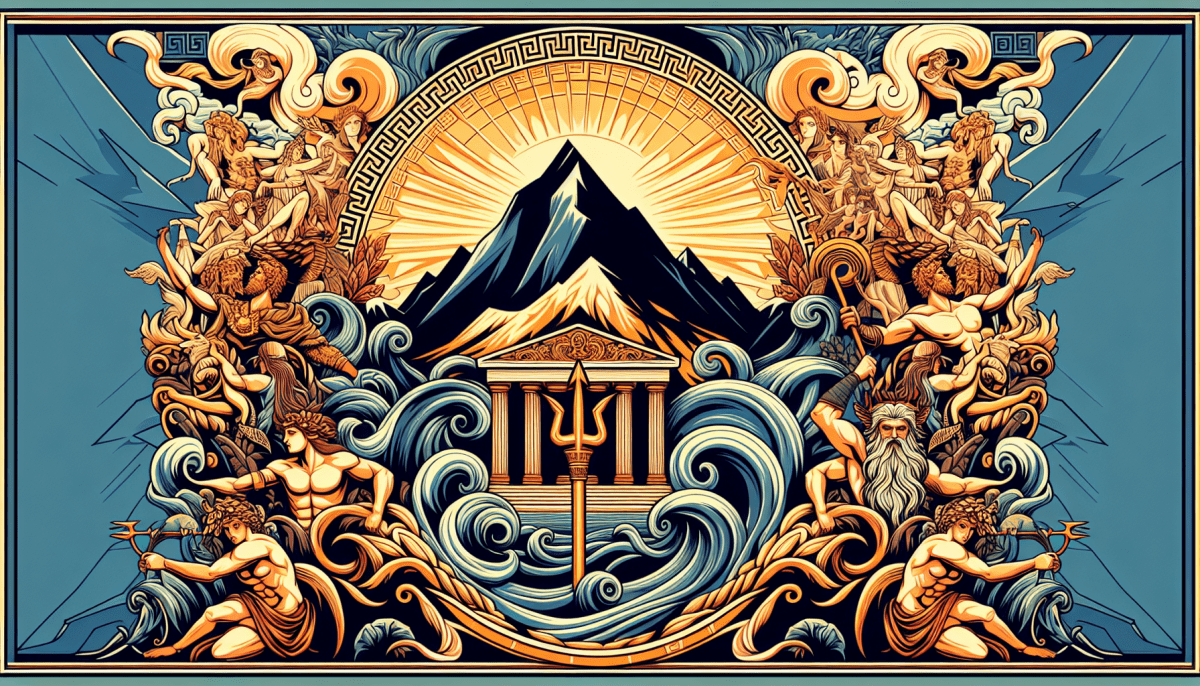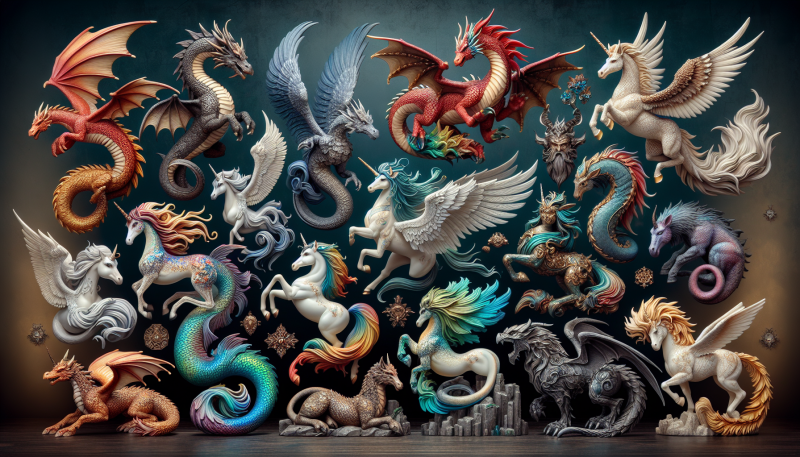Greek mythology has its roots in the ancient traditions and beliefs of the Greek people. The origins can be traced back to the Bronze Age, around 3000 BCE, when early Greek cultures began to form. During this time, people worshipped various deities who represented natural forces and aspects of life. These early religious practices set the stage for the complex pantheon of gods and goddesses that would emerge in later Greek mythology.
As Greek civilization evolved, so did its mythology. The stories of gods like Zeus, Hera, and Poseidon began to take shape, often inspired by earlier Near Eastern myths. Influential poets such as Homer and Hesiod played a crucial role in crafting these narratives, providing a rich tapestry of tales filled with adventure, moral lessons, and explanations for natural phenomena. Their works, such as "The Iliad" and "Theogony," helped to standardize the myths and legends, making them more accessible to the broader public.
Greek mythology also served as a way for the ancient Greeks to understand their world. These myths provided answers to fundamental questions about existence, creation, and the afterlife. They also offered insights into human nature and the complexities of life. The stories often featured relatable characters and moral dilemmas, allowing the people to see reflections of their own lives and struggles within the narratives.
Furthermore, the geography of Greece played a role in shaping its mythology. The mountains, islands, and seas became the backdrop for many myths, leading to localized versions of stories across different regions. Each city-state often adopted its own deities and myths, creating a rich diversity within Greek mythology. This variety not only enriched the cultural fabric of ancient Greece but also ensured that the myths remained relevant and resonant across generations.
Major Gods and Goddesses
Greek mythology is filled with powerful deities that played significant roles in the lives of ancient Greeks. Among these, Zeus stands out as the king of the gods. Often depicted with a thunderbolt, he ruled Mount Olympus and was considered the god of the sky and thunder. His many relationships with goddesses and mortals led to numerous offspring, each with their own fascinating stories and attributes.
Alongside Zeus is Hera, his wife and sister. As the goddess of marriage and family, she was known for her loyalty to the institution of marriage, but also for her jealousy, often targeting Zeus's lovers and their children. The dynamic between these two characters showcases the complexities of Greek mythology, where love, betrayal, and power intertwine in captivating tales.
Another significant figure in Greek mythology is Poseidon, the god of the sea. With his trident in hand, he governed the oceans and was known for his volatile temperament. Earthquakes and storms were often attributed to Poseidon's restless nature. Also noteworthy is Athena, the goddess of wisdom and war. Born fully grown from Zeus's forehead, she was revered for her intelligence and strategic prowess in battle, as well as her role as the protector of cities, particularly Athens.
Lastly, we cannot forget about Aphrodite, the goddess of love and beauty. Her enchanting presence and ability to inspire love made her one of the most beloved deities in Greek mythology. Stories of her romantic escapades and involvement in the lives of mortals highlight the interplay between divinity and human experience. Each god and goddess contributes to the rich tapestry of Greek mythology, providing timeless stories that resonate to this day.
Legendary Heroes and Their Tales
Greek mythology is filled with legendary heroes whose tales have captivated audiences for centuries. These heroes often embarked on incredible quests, facing monstrous foes and overcoming seemingly insurmountable odds. From the mighty Heracles to the clever Odysseus, the stories of these figures reveal not only their extraordinary abilities but also the values and lessons of ancient Greek culture.
One of the most famous heroes, Heracles, known for his incredible strength and bravery, is perhaps best remembered for his Twelve Labors. Each labor was more challenging than the last, including defeating the Nemean Lion and capturing the Golden Hind of Artemis. Through these adventures, Heracles exemplified the Greek ideal of heroism, demonstrating courage and perseverance in the face of danger.
Odysseus, the cunning protagonist of Homer's "The Odyssey," showcases another critical aspect of Greek mythology: intelligence and wit. After the fall of Troy, Odysseus faced numerous trials on his journey home, including encounters with mythical creatures like the Cyclops and the Sirens. His cleverness often turned the tide in his favor, proving that brains can be just as important as brawn in the pursuit of success.
The stories of these legendary heroes not only entertain but also serve to convey moral lessons and cultural values integral to Greek mythology. Themes of bravery, intelligence, and resilience resonate throughout their tales, providing insights into the ancient Greek worldview. Through the adventures of Heracles and Odysseus, we gain a glimpse into the qualities that were admired in heroes during those times.
Impact on Modern Culture
Greek mythology continues to wield a remarkable influence on modern culture, shaping art, literature, and popular media. Many contemporary stories, films, and television series draw inspiration from the tales of gods, heroes, and mythical creatures that have been passed down through generations. From the majestic figure of Zeus to the cunning adventures of Odysseus, these timeless tales remain relevant and resonate deeply with audiences today.
Literature often reflects the themes found in Greek mythology, such as heroism, love, and the struggle against fate. Authors like Rick Riordan have captivated younger generations with the "Percy Jackson" series, which blends the rich tapestry of Greek mythology with modern settings and relatable characters. This not only introduces readers to ancient stories but also encourages them to understand the moral and philosophical questions that these myths explore.
In addition to literature, Greek mythology's influence can be seen in the world of cinema. Hollywood has produced numerous films that bring these ancient stories to life, from "Clash of the Titans" to "Wonder Woman," which incorporates elements of Greek mythology into its narrative. Such adaptations not only entertain but also ignite curiosity about the original myths, sparking discussions about their meanings and importance.
Moreover, Greek mythology has permeated everyday language and expressions. Phrases like "Herculean task" or "Pandora's box" originate from these ancient tales, showing how deeply ingrained these myths are in our modern vernacular. This influence highlights how Greek mythology continues to play a significant role in shaping our worldview, values, and cultural expressions, ensuring its relevance in our lives today.



